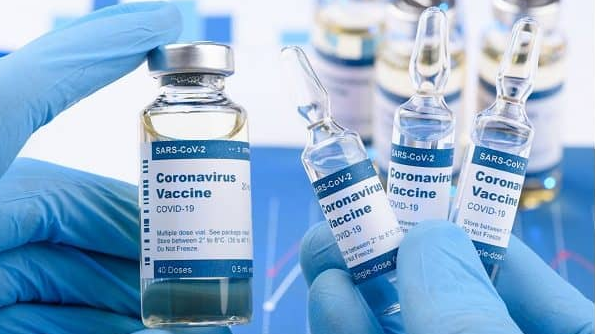Beijing: After the first shot, he had no reaction. But Kan Chai felt woozy following the second dose of a COVID-19 vaccine approved for emergency use in China. “When I was driving on the road, I suddenly felt a bit dizzy. It was as if I was driving drunk,” the popular writer and columnist recounted on a webinar earlier this month. “So I found a place to stop the car, rest a bit and then I felt better,” he added. He is one of the thousands who have been given the COVID-19 vaccine before final regulatory approval for general use.
It’s an unusual move that raises ethical and safety questions. Currently companies and governments worldwide are in a race to develop a vaccine. They are doing so to stop the spread of the new coronavirus.
Chinese companies earlier drew attention for giving the vaccine to their top executives and leading researchers before human trials. These companies had done so even before testing their safety and efficacy. In recent months, they have injected a far larger number under an emergency use designation approved in June, and that number appears poised to rise.
A Chinese health official said Friday that China has largely eradicated the disease. However it needs to take steps to prevent it from coming back.
But one outside expert questioned the need for emergency use when the virus is no longer spreading in China. Coronavirus first started in the Wuhan province in China.
Also read: Hope rekindles: Johnson & Johnson’s COVID-19 vaccine produces strong immunity
It’s unclear exactly who and how many people have been injected so far. However, Chinese vaccine makes have offered some clues. State-owned ‘Sinopharm’ subsidiary ‘CNBG’ has given the vaccine shot to 350,000 people outside its clinical trials. This information was disclosed by an official of the company.
Another company, SinoVac, has injected 90 per cent of its employees and family members, or about 3,000 people. This has been done under the emergency-use provision, CEO Yin Weidong said. It has also provided tens of thousands of rounds of its ‘CoronaVac’ to the Beijing city government.
Another vaccine candidate is being jointly developed by the military and ‘Cansino’, a biopharmaceutical company. It has been approved for emergency use in military personnel.
“The first people to have priority in emergency use are the vaccine researchers and the vaccine manufacturers. This is because when the pandemic comes, if these people are infected then there’s no way to produce the vaccine,” Yin said.
Large Chinese firms like ‘Huawei’ and ‘Phoenix TV’ have announced they are working with ‘Sinopharm’ to get the vaccine for their employees.
Several people who work in ‘front-line’ organisations have said on social media that their workplaces have offered vaccinations for about 1,000 yuan (USD 150). They declined to comment, saying they would need permission from their organisation.
In an established but limited practice, experimental medications have been approved historically for use when they are still in the third and last phase of human trials. Chinese companies have four vaccines in phase 3 – two from ‘Sinopharm’ and one each from ‘SinoVac’ and ‘Cansino’.
The Chinese government referenced the World Health Organisation’s (WHO) emergency-use principles to create its own through a strict process, National Health Commission official Zheng Zhongwei said at a news conference Friday. He said there have been no serious side effects in the clinical trials.
“We’ve made it very clear that the COVID-19 vaccine we put into emergency use are safe,” Zheng said. “Their safety can be ensured but their efficacy is yet to be determined,” he added.
